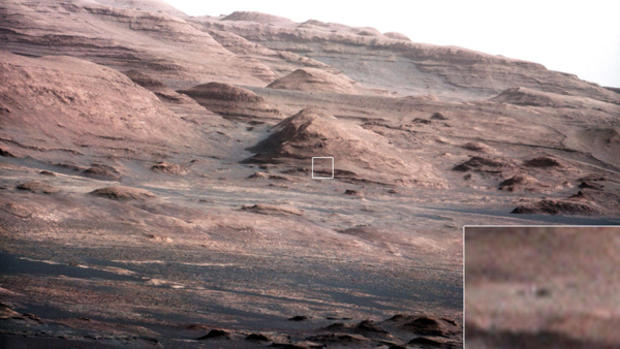NASA looks to keep American eyes on space
(CBS News) Fifty years after the space age began, budget cuts have significantly hurt America's space program. But NASA officials say they're still doing groundbreaking work, like this week's Mars landing.
Latest Curiosity images show rover's mission on Mars
For many fans of the space program the final launch of the shuttle, and the piggy-back journey to a museum, was cause for deep disappointment. But for NASA administrator Charles Bolden, it was the dawn of a new NASA. Bolden has said, "It allows us to move on to exploration, to what everybody expects of NASA."
This week came a giant step in that direction as the car-sized rover named Curiosity made a dramatic landing on Mars and NASA scientists exploded in joy and relief.
Bolden says it's all part of the transition from the old NASA to NASA 2.0. Bolden said, "I would say NASA 2.0, the new NASA, is the old NASA willing to accept new ideas."
But in recent years, NASA has not just been about new ideas about exploration - but new ways to keep Americans focused on space. For the landing of Curiosity, NASA used every trick in the high-tech communications book: Millions went on-line to watch NASA's special-effects video of the landing, called "7 Minutes of Terror," starring a giant parachute and a rocket-propelled landing platform. They're using every kind of social media. The rover even has its own Twitter account with nearly a million followers. And it will be sending back a steady stream of color photos, including some already released of the craft during its descent.
NASA even seems pleased that a scientist known as "Mohawk Guy" has become an internet sensation.
Bolden told CBS News, "It's definitely NASA for the new generation."
CBS News space analyst Bill Harwood said it's no surprise that people are fascinated with the Mars rover. "They're landing on another world. It's exciting," he said. "What are they gonna see? What are they gonna find? Was there ever life ever on Mars?"
But he says due to tight budgets NASA already had to withdraw from two other Mars missions with the European Space Agency.
And NASA will lose $300 million for planetary exploration next year, with more cuts to follow. Harwood said, "From a planetary exploration standpoint, the budget's killing them."
Always the optimist, administrator Bolden is holding out hope that space exploration and budget cuts can co-exist. He said, "There will never be a budget that will satisfy the insatiable appetite for funds that I have."
To watch Chip Reid's full report, click on the video in the player above.
